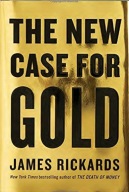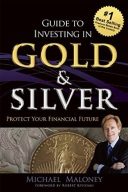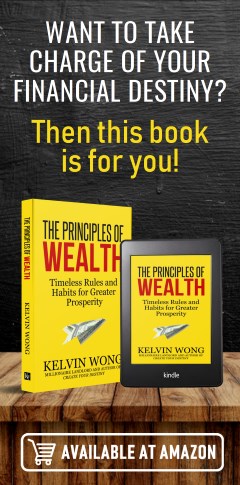Gold is often described by many as the “barbarous relic” of the past. It’s a favourite phrase of gold-bashers everywhere trying to make gold the object of derision. Even legendary investor Warren Buffett criticized gold this way: "It gets dug out of the ground in Africa or someplace. Then we melt it down, dig another hole, bury it again and pay people to stand around guarding it. It has no utility. Anyone watching from Mars would be scratching their head." Gold not only doesn't earn you interest, you even need to pay storage cost for your gold. Furthermore, many speculators got burnt speculating gold. The long-term total returns of gold are not that fantastic and therefore should have discouraged most investors.
Indeed, gold is one of those investments that attracts extreme viewpoints. Are there still good enough reasons to include gold as part of your investment portfolio? Or should you just forget about investing in gold altogether and focus on other investment vehicles instead?
Gold is often viewed as a global currency and as a tangible store of value. Physical gold is held by most central banks within the world economy. Many people also view gold as a way to preserve and pass on their wealth from generation to generation.
Historically, gold has been an excellent hedge against inflation. Gold price tends to rise when the cost of living increases. Investors have seen gold prices soar while the stock market plunged during the high-inflation years. Gold is also useful in diversifying and protecting your portfolio. It's what you should include in your portfolio to hedge your investment when stock markets fall. Think about the unexpected Brexit vote in the United Kingdom that smashes global stock markets. Unlike paper currency or other assets, gold has a long history of maintaining its value. The value of gold often does not move in line with other investment assets such as equities or properties. Gold also holds its value well in times of geopolitical uncertainties. During such times, gold normally outperforms other types of investment. People tend to flee to this "crisis commodity" when world tensions rise and when people are losing confidence in their governments. Now, the problem with gold-bashers is that they view gold as investment, not as insurance. When gold is seen as an investment, investors would expect to earn a return of capital. They would buy at a certain price point and hope to sell their gold at higher prices sometime in the future. They could lose huge amounts of money if gold prices don’t go their way. Gold should be viewed as savings for the rainy day and used as a form of financial insurance for your overall investment portfolio. If you treat gold as insurance and not as investment, you’ll not be frustrated or affected by the daily fluctuations of gold price. Insurance is a protection against the possibility of a catastrophe. You pay for insurance to have a peace of mind without having to worry that you’ll lose your possessions if disasters happen. Really, the cost isn't huge to buy you good sleep every night! Similar to an insurance policy, buy gold to protect your investment but at the same time hoping never to have to use it. Just like when you buy home insurance, you don’t wish for a fire or flood to strike at your doorstep right? You wouldn’t trade an insurance policy, so don’t trade your gold. While gold prices can be volatile in the short term, its value hold well over the long term. Gold price increases with events that causes investments such as bonds and stocks to fall. Gold has also served well as a hedge against inflation and global crises. Hence, it's prudent to include gold as part of your overall investment. Consider allocating 5-10% of your investment portfolio to gold for a start. Also Read: Five Factors to Consider Before You Start Investing The Biggest Reason Why Most People Can't Get Rich Why Investing Early Makes Sense Recommended Books:
0 Comments
Your comment will be posted after it is approved.
Leave a Reply. |
|







